Progress, constraints and priorities after eight years of implementation of the Association Agreement with the European Union
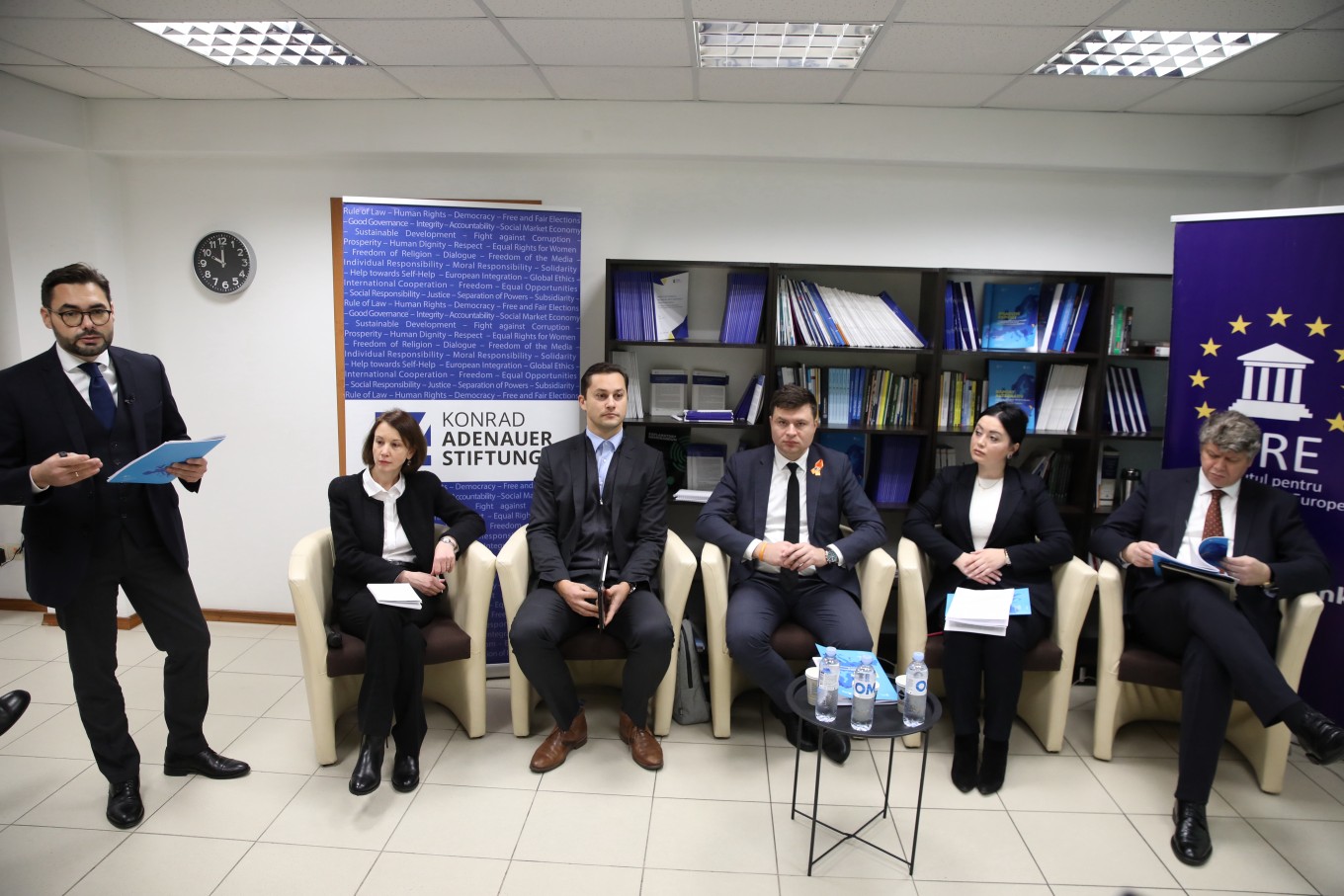
The Institute for European Policies and Reforms (IPRE), in partnership with the National Platform of the Eastern Partnership Civil Society Forum and with the kind support of the Konrad Adenauer Foundation of the Republic of Moldova, presented on Friday, November 25, 2022, during a public event, the main findings of the Shadow Report “Eight years of implementation of the EU-Moldova Association Agreement: Progress. Constraints. Priorities”.
At the opening of the event, IPRE experts Iulian Groza, Stanislav Ghilețchi, Adrian Ermurachi and Mihai Mogîldea, presented the main findings of the Report, followed by a discussion with guest speakers of the event.
Further below we propose some of the main speeches of the key speakers:
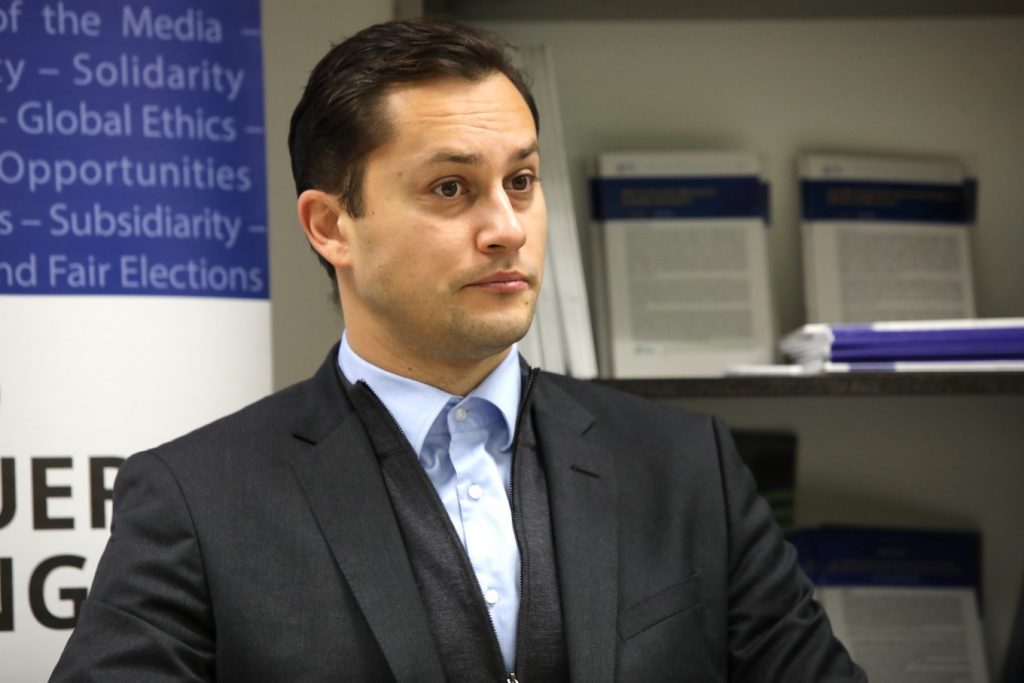
Adrian Lupușor, Executive Director of Expert-Grup, Facilitator of the National Platform of the FSC of the EaP: “It is important that we all appreciate the fundamental role of the European Union as a trading partner, but also as an investment and external assistance partner. On the trade dimension, the EU is the most important partner of the Republic of Moldova. I would like to point out that, in addition to the major share of our country’s exports to the EU, a very important role is also played by imports from the EU into the Republic of Moldova, from the perspective of complementarity. For the most part, imports from the EU do not compete with domestic production – they are either raw materials for export, technologies, or products that are not produced in Moldova. We have therefore seen over these eight years that trade with the EU has become more balanced – the level of export coverage with imports has improved and the sectors that have benefited most from the liberalisation of trade have been the agri-food sectors that initially considered themselves the most vulnerable to this liberalisation. Now it is imperative to inform the society about the process of implementing the provisions of the Association Agreement, but also of the conditionalities of the European Commission, in the context of receiving the status of candidate country, because the success of the European integration process is not only based on the reforms initiated and implemented by the Government, but also on the participation of the entire society – which depends a lot on the way in which this society is informed.”
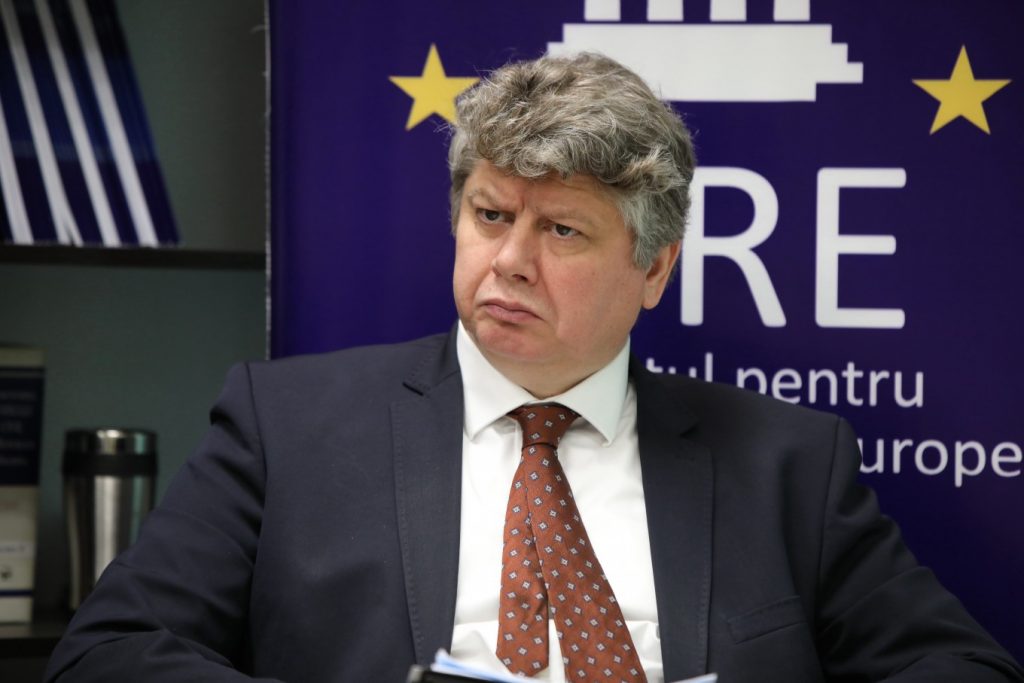
Eugen Caras, Head of the European Integration Directorate, MFAEI: “The Shadow Report prepared by IPRE is a reference document both for the diplomatic corps delegated to Chisinau and for the academic environment that is interested in the relationship of the Republic of Moldova with the European Union and in the progress of implementing the Association Agreement. Of course, the best news for this year, politically and diplomatically, is the offering of the status of candidate country to the European Union for the Republic of Moldova. This makes state institutions accountable, but we also need the support of civil society. The relationship we have with the EU is extremely important and beneficial for us, especially in the context of Russia’s war against Ukraine. Of course, the impact is felt very much in the Republic of Moldova as well, as we are the country with the greatest vulnerabilities. There is a very strong interaction between Moldova and the EU precisely because of this unjust war against Ukraine. Areas such as security, defence, energy and transport are now taking on a whole new dimension. We are seeing a substantial increase in financial support from the European Union to deal with the vulnerability that we have in the area of defence and security, and so we all know how much the energy crisis is affecting us in the context of war. THE EU’s assistance has always been great towards us, but now we also have the targeted support of the EU in vulnerable areas. Under these circumstances, our relationship with the EU makes us stronger and more resilient.”
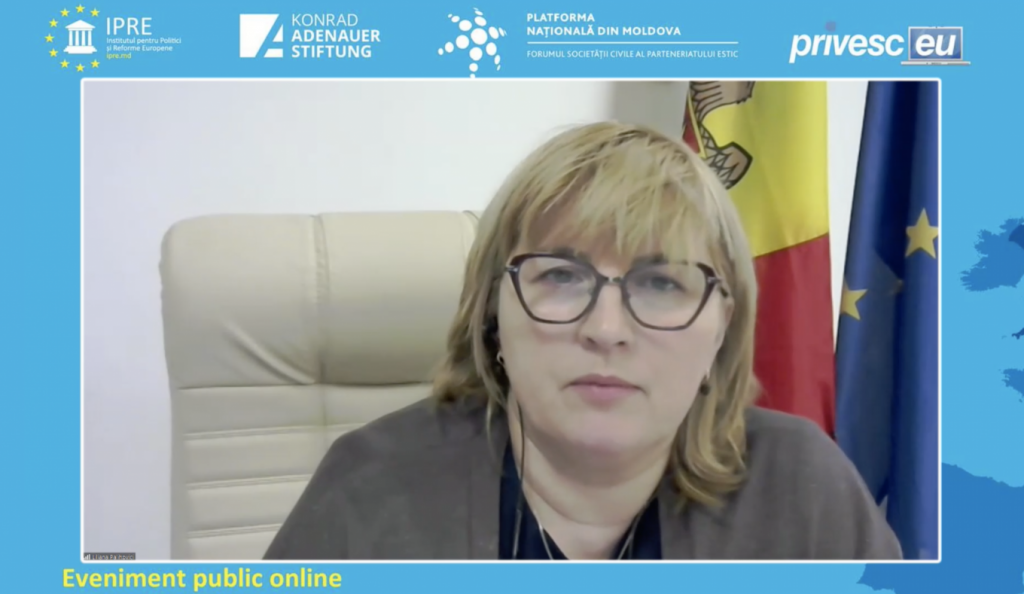
Liliana Palihovici, Co-Chairwoman EU-Moldova Civil Society Platform: “One of the key agenda points of the most recent meeting of the EU-Moldova Civil Society Platform, created with the purpose of monitoring the implementation of the Association Agreement, was the assessment of the progresses and challenges for the implementation of the Agreement. I would like to stress the active role played by civil society organisations, think tanks and expert communities in providing the necessary assistance to the Government to speed up the response and to supplement with information the first and second part of the European Commission’s Questionnaire for the preparation of the Opinion on the application for accession of the Republic of Moldova to the EU. In the recently posted statement of the EU-Moldova Platform, it is mentioned that civil society will remain involved in contributing to the implementation by the Republic of Moldova of the 9 conditionalities for the opening of accession negotiations to the EU. We also appreciate the fact that the National Commission for European Integration approved the action plan for the implementation of the measures proposed by the European Commission in its Opinion. Here we must bear in mind that things are always changing and this action plan must be constantly adjusted to the new realities. It should be stressed and appreciated that, although today’s Government has faced a lot of extreme challenges, including the public health crisis, the refugee crisis, the energy crisis and the war at the border, we see remarkable progress in the process of implementing the Association Agreement. The EU-Moldova Platform considers that a better implementation of the Association Agreement can take place if the process of elaboration of a new public policy document in the field of anti-corruption is accelerated. There is a need for capacity building and capacity-building of information and security services in the exercise of their functions, in particular related to the verification of candidates and holders for public offices and the assessment of corruption risks.”
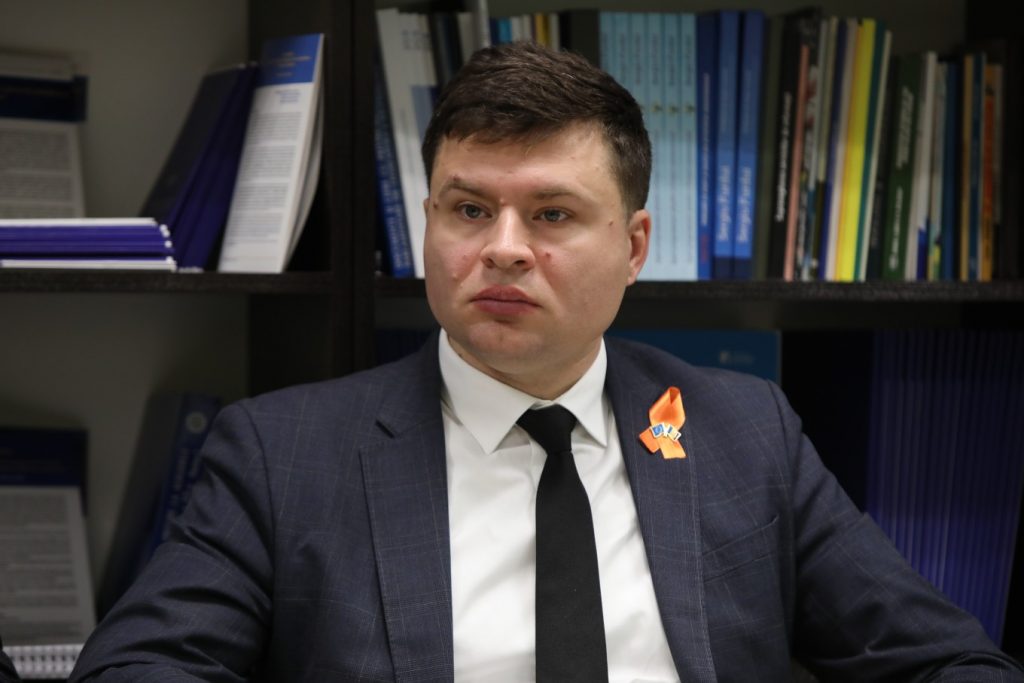
Vasile Plămădeală, Trade officer, EU Delegation to the Republic of Moldova: “The EU has maintained and strengthened its role as the number one trading partner of the Republic of Moldova since the entry into force of the Deep and Comprehensive Free Trade Agreement (DCFTA). We are talking about stable and significant increases in exports to the EU and a significant, and I consider, irreversible, integration of the Republic of Moldova into the economy of the European Union. The Association Agreement and the DCFTA represent an ambitious reform program for the Government and the national economy, and it is imperative that the consolidation of institutions and the rule of law, as well as the justice reform, continue. Since last year, the EU has supported the Republic of Moldova in overcoming the energy crisis and has been working intensively on the field of access by the Republic of Moldova to the energy markets of the European Union. Last winter, the Republic of Moldova made the first test purchases and proved that it is possible to buy gas from the European market. This year, the Republic of Moldova is already more prepared and with legislation in the right place, as well as can make the necessary reservations to pass the winter well, and I am confident that the consolidated effort of the authorities, civil society, development partners, and citizens will allow this crisis to pass well.”
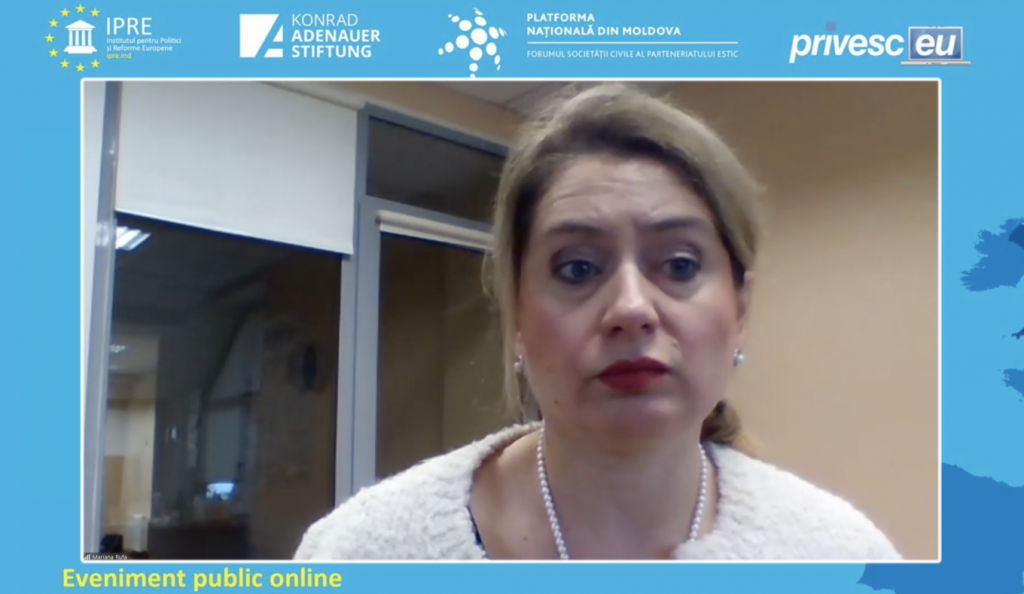
Mariana Rufa, Executive Director, European Business Association: “It is extremely important to assess and monitor all the institutions on which the business depends, especially when we talk about international transactions and export-import transactions. At the same time, it is imperative to draw attention to the public resource – the business sees a concern in the context in which the public resource is insufficient to cope with the reforms, as well as their implementation and monitoring. I would also like to talk about the environmental sector, there are a number of aspects, provided for in the Association Agreement, which are not yet implemented. We are glad that the President has established the two tasks for the new mandate of the Ministry of Environment, which are related to afforestation and the creation of an integrated waste management system, this implicitly provides for the elaboration and implementation of the extended responsibility of the producer. It is important to strengthen the capacities of the Environment Agency, which will monitor the correct implementation of this mechanism.”
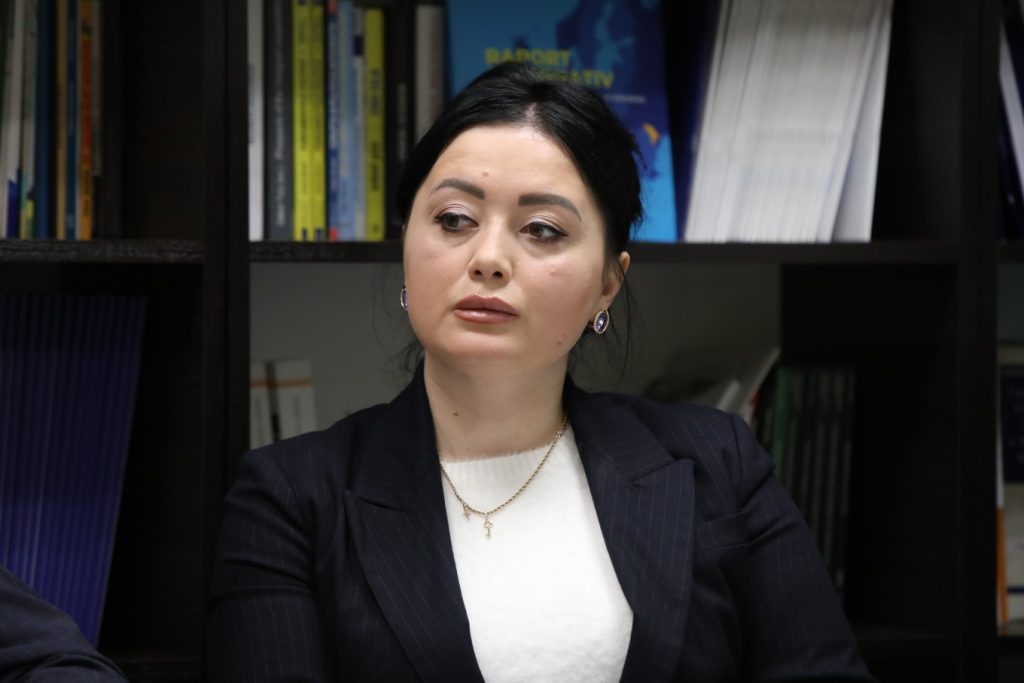
Mihaela Gorban, Deputy Head of the International Economic Cooperation Directorate, Ministry of Economy:“The European Union is the main trading partner of the Republic of Moldova, and this fact is fully demonstrated, if we examine the upward trend of our exports to the EU market. In 2021, 1860 companies exported products to the EU market, the top 5 recipient countries being Romania, Germany, Italy, Poland and the Czech Republic. The EU also provides important financial support to the Republic of Moldova. At the level of the Ministry of Economy, we have a very good dialogue with the DG TRADE and we very much appreciate the EU’s support in increasing tariff rate quotas for the export of products with export potential, and here I am referring in particular to the doubling and even tripling of these tariff quotas that we have for agricultural products. We are in the process of discussions with the EU Trade Directorate in order to advance and fully eliminate the tariff contingencies existing within the Association Agreement.”
The video recording of the public event presenting the Report can be watched here.
The IPRE report was elaborated within the IPRE Project “Monitoring the implementation of the Association Agreement between the Republic of Moldova and the European Union”, implemented with the support of the Konrad Adenauer Foundation (KAS).

